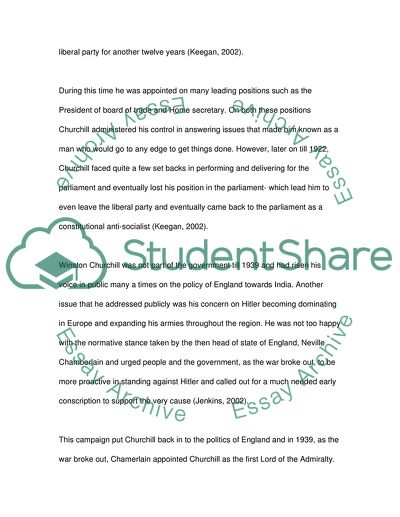Cite this document
(To What Extent Was Winston Churchill a Successful Wartime Leader Essay, n.d.)
To What Extent Was Winston Churchill a Successful Wartime Leader Essay. Retrieved from https://studentshare.org/history/1712172-to-what-extent-was-winston-churchill-a-successful-wartime-leader-1940-1945
To What Extent Was Winston Churchill a Successful Wartime Leader Essay. Retrieved from https://studentshare.org/history/1712172-to-what-extent-was-winston-churchill-a-successful-wartime-leader-1940-1945
(To What Extent Was Winston Churchill a Successful Wartime Leader Essay)
To What Extent Was Winston Churchill a Successful Wartime Leader Essay. https://studentshare.org/history/1712172-to-what-extent-was-winston-churchill-a-successful-wartime-leader-1940-1945.
To What Extent Was Winston Churchill a Successful Wartime Leader Essay. https://studentshare.org/history/1712172-to-what-extent-was-winston-churchill-a-successful-wartime-leader-1940-1945.
“To What Extent Was Winston Churchill a Successful Wartime Leader Essay”, n.d. https://studentshare.org/history/1712172-to-what-extent-was-winston-churchill-a-successful-wartime-leader-1940-1945.


